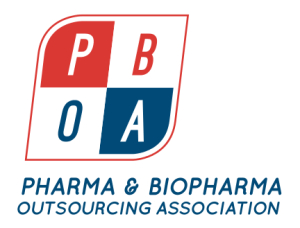 This article was published in Bio/Pharmaceutical Outsourcing Report • Volume 20, Number 6, June 2015 • ©2015 PharmSource Information Services
This article was published in Bio/Pharmaceutical Outsourcing Report • Volume 20, Number 6, June 2015 • ©2015 PharmSource Information Services
Drug product CMOs finally got a seat at the table at FDA as their trade association, the Pharmaceutical and Biopharmaceutical Outsourcing Association (PBOA) argued the industry’s case at the Generic Drug User Fee Amendments of 2012 (GDUFA) reauthorization hearings. PBOA’s president Gil Roth made the case that CMOs are unfairly burdened by GDUFA’s mechanism for funding facility inspections, and that changes will have to come for the next five-year authorization period.
GDUFA is designed to accelerate the approval of generic drug applications by instituting a system of fees to fund the expansion of FDA’s capacity to do application reviews and pre- and post-approval inspections of manufacturing facilities. The fees are charged annually to ANDA filers and to facilities that manufacture generic APIs and drug products, but they fall disproportionately on the drug product manufacturers: for FY2015, the fee for a finished dose manufacturing facility in the US is $247,717, while for a domestic API facility, it is just $41,926.
The flat fee is the same for every facility, i.e., a facility that manufactures a single generic product pays the same fee as a facility that manufactures 20 products. The fees for facilities located outside of the US are $15,000 higher than for domestic facilities.
The GDUFA facility fees have had a major negative impact on many drug product CMOs because they were not anticipated in contracts signed before the passage of GDUFA and because they impose a substantial burden on smaller CMOs that manufacture niche generic products. In his presentation, Roth argued the negative implications of continuing with the GDUFA facility fee schedule as it is currently assessed. In particular he noted that the schedule might force some CMOs to discontinue manufacturing generic drugs, reducing competition for manufacture of those cost-sensitive products, making niche drugs more expensive and hard to get, and exacerbating drug shortages.
The PBOA’s preferred alternative to the current fee process is to have the ANDA holder pay the facility fee as part of the total drug filer fee package; this is how the fees are handled for NDA products under PDUFA. Alternatively, the association would like to see a tiered fee structure that treats CMOs differently from the ANDA owners; and/or a system of reduced or waived fees for smaller CMOs.
“I’m glad that FDA and the Office of Generic Drugs gave the PBOA the opportunity to present at the hearing, and I’m looking forward to participating in the industry negotiations for GDUFA II,” said Roth. “Our sector had no representation when GDUFA I was being hashed out, and it’s important for the survival of our industry that CMOs have a voice in the process, not just for GDUFA, but for future legislation and regulations that impact our business.”
Simply getting a slot in the GDUFA hearings was a major milestone for the PBOA, which was established only in June 2014. Roth and the PBOA board have worked hard to get FDA to recognize the importance of CMOs to the bio/pharmaceutical industry.
At a March PBOA workshop attended by FDA officials, data compiled by PharmSource was presented that showed that drug product CMOs have been the manufacturers of 45% of NDA products approved in the past 10 years. That appears to have been the first time that FDA officials realized the significance of CMOs to the bio/pharmaceutical industry.
More information on the PBOA’s mission, activities and membership can be obtained at www.pharma-bio.org.
This article was published in Bio/Pharmaceutical Outsourcing Report • Volume 20, Number 6, June 2015 • ©2015
